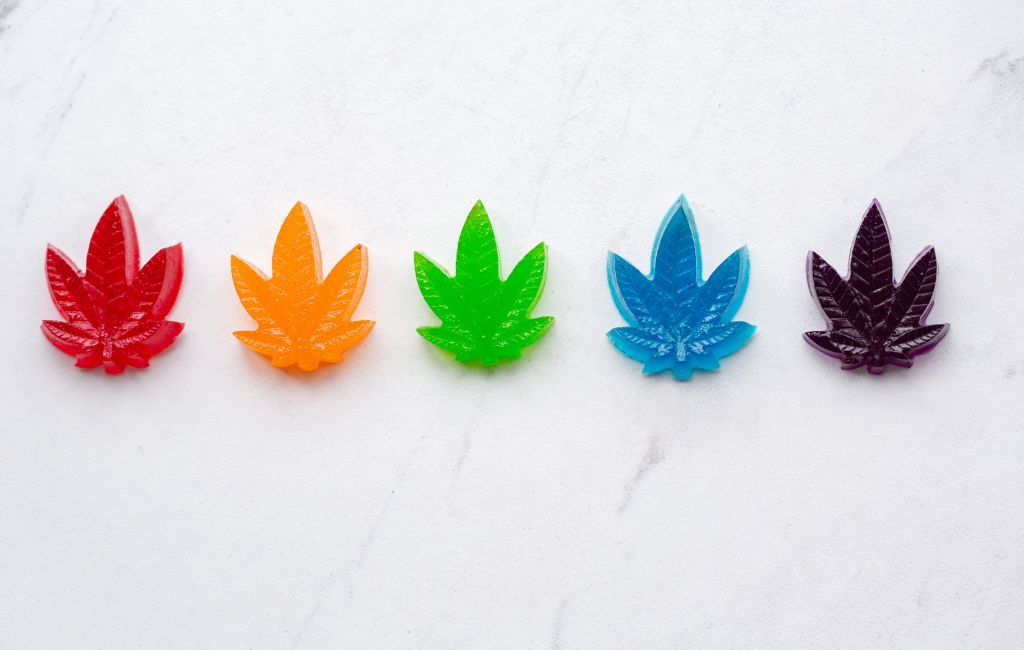Delta 9 Gummies vs CBD
The world of cannabis products has expanded significantly, offering a variety of options for consumers seeking therapeutic benefits. Among these, Delta 9 gummies and CBD products have gained popularity. This article explores the differences between these two, providing insights into their effects, benefits, and potential uses.
What Are Delta 9 Gummies?
Delta 9 gummies are edible products infused with Delta 9-tetrahydrocannabinol (THC), the primary psychoactive compound found in cannabis. These gummies are known for their ability to produce a euphoric high, making them a popular choice for recreational users. The concentration of Delta 9 THC in these gummies can vary, affecting the intensity of the experience.
Effects of Delta 9 Gummies
Delta 9 THC interacts with the endocannabinoid system in the body, primarily affecting the CB1 receptors in the brain. This interaction leads to a range of effects, including:
- Euphoria and relaxation
- Altered perception of time and space
- Increased appetite
- Potential anxiety or paranoia in high doses
These effects can vary based on individual tolerance, dosage, and the specific formulation of the gummies.
Understanding CBD
Cannabidiol (CBD) is another compound found in cannabis, but unlike Delta 9 THC, it does not produce a psychoactive high. CBD is often extracted from hemp plants and is used for its potential therapeutic benefits without the intoxicating effects associated with THC.
Benefits of CBD
CBD is praised for its potential health benefits, which include:
- Reducing anxiety and depression
- Alleviating pain and inflammation
- Improving sleep quality
- Supporting neurological health
These benefits have been supported by various studies, although more research is needed to fully understand the extent of CBD’s therapeutic potential.
Comparing Delta 9 Gummies and CBD
When choosing between Delta 9 gummies and CBD products, several factors come into play. Understanding the differences can help consumers make informed decisions based on their needs and preferences.
Psychoactive Effects
The most significant difference lies in the psychoactive effects. Delta 9 gummies are known for their ability to produce a high, which can be desirable for recreational use. In contrast, CBD does not induce a high, making it suitable for those seeking therapeutic benefits without intoxication.
Legal Status
The legal status of Delta 9 THC and CBD varies by region. In many places, CBD is legal if it contains less than 0.3% THC. Delta 9 THC, however, is often subject to stricter regulations due to its psychoactive nature. Consumers should be aware of local laws before purchasing or using these products.
Potential Side Effects
Both Delta 9 THC and CBD can have side effects, though they differ in nature and severity. Delta 9 THC may cause:
- Anxiety or paranoia
- Dry mouth and red eyes
- Impaired memory and coordination
CBD is generally well-tolerated, but some users may experience:
- Fatigue
- Diarrhea
- Changes in appetite or weight
Case Studies and Statistics
Research on cannabis products continues to grow, providing valuable insights into their effects and benefits. A study published in the Journal of Clinical Psychology found that CBD significantly reduced anxiety in participants, supporting its use for mental health conditions. Another study in the European Journal of Pain demonstrated CBD’s potential in reducing chronic pain and inflammation.
In contrast, a report from the National Institute on Drug Abuse highlights the potential risks of Delta 9 THC, including its impact on cognitive function and mental health. These findings underscore the importance of understanding the effects of each compound before use.
Making an Informed Choice
Choosing between Delta 9 gummies and CBD products depends on individual goals and preferences. Those seeking a recreational experience may prefer Delta 9 gummies, while individuals looking for therapeutic benefits without intoxication might opt for CBD.
Consumers should consider factors such as desired effects, legal status, and potential side effects when making their decision. Consulting with a healthcare professional can also provide guidance tailored to individual health needs.
Conclusion
Delta 9 gummies and CBD products offer distinct experiences and benefits, catering to different consumer needs. Understanding their differences in terms of effects, legal status, and potential side effects can help individuals make informed choices. As research continues to evolve, these products may offer even more possibilities for enhancing well-being and quality of life.
